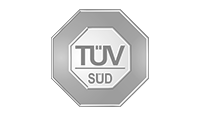Request a Demo
Trusted by leading brands, retailers, manufacturers and service providers across industries such as:
















Consumers want environmental transparency, authenticity, and honesty from companies and their leaders. Governments want proper accountability and are enforcing it through regulations that limit waste, emissions, and other damaging factors.
Many supply chain businesses are responding positively. Companies are backing their employees by putting even more emphasis on health, safety, and corporate social responsibility (CSR). Leaders are investing in green technology to support lower-impact supply chains. Organizations are going beyond carbon neutral commitments, with promises to reduce net carbon below zero.
We’re seeing encouraging trends in many areas: Carbon neutrality, circularity assessments, sustainable packaging, and supply chain transparency are all becoming increasingly vital. It’s worth exploring some of the latest drivers, and understanding how these critical Environmental, Social, and Governance (ESG) topics will become even more central to a sustainable supply chain.
“The typical consumer company’s supply chain creates far greater social and environmental costs than its own operations, accounting for more than 80 percent of greenhouse-gas emissions and more than 90 percent of the impact on air, land, water, biodiversity, and geological resources.” — McKinsey: Starting at the source: Sustainability in supply chains.
Excess packaging is a major issue for individuals, with more than half of consumers in the US highly concerned about the environmental impact of packaging. “Reduce, Reuse, Recycle” is becoming an increasingly common mantra, together with the justifiable pushback that businesses need to be leading this change.
Supply chain businesses need to put “Circular Economy” thinking at the heart of their packaging initiatives. This means building out a framework that reduces the environmental impact of how companies extract, produce, store, and distribute products.
From a packaging perspective, this means eliminating waste as much as possible—moving away from single-use plastic and unrecyclable multilayer plastic structures. It means circulating and recycling packaging materials and products. Wash-off inks mean that printed packaging can be cleaned and reused. Mono-plastic packaging allows for less wasteful recycling streams. Bioplastic packaging is easily compostable.
“Consumers are willing to pay more for green, but they would also buy additional sustainably packaged products if more of them were available and they were better labeled… …If you ask consumers what they want to see going forward, they are almost equally interested in recyclable and recycled plastic packaging and in fiber-based substitutes… …The COVID-19 crisis has significantly heightened consumer sensitivity to hygiene and food safety, which are new strong preferences for packaging materials.”—McKinsey: Sustainability in packaging: Inside the minds of US consumers
Supply chain companies can start bringing together supply, manufacturing, and distribution in a more responsible way:
Your business can take advantage of circular assessment and sustainable packaging trends through:
Sustainability isn’t just about reducing environmental damage, it also means treating supply chain employees and their communities in a safe and ethical way. We’re seeing legislation that’s increasingly putting worker rights front-and-center.
One example is the German Supply Chain Act that increases scrutiny for supply chain businesses. It means that companies can be held legally accountable if any of their suppliers or indirect suppliers engage in criminal or unethical behavior like child labor, forced labor, or slavery.
“Given the keen global interest and emphasis on expanding ESG initiatives, it is likely that the Supply Chain Act is not the final legislation of its type that companies will need to follow. Companies engaged in global commerce and their attorneys should anticipate further legislation around the globe, with similar extraterritorial application, attempting to address human rights and environmental ills that exist.”—JD Supra: New German Supply Chain Act – New challenges and exposure for companies doing business in Germany”
These legal frameworks and requirements will become increasingly prevalent. Supply chain companies need to prepare:
Your business can stay a step ahead of legislation while ensuring the proper protection and care of the supply chain workforce:
The right supply chain software platform puts sustainability front-and-center. Topo will help you reduce your administrative overhead while streamlining your ESG initiatives. We believe in a proactive approach to corporate social responsibility, helping you navigate the complex world of legislation, compliance, and reporting.
Topo will increase transparency throughout your supply chain, promoting open collaboration and communication with all of your partners and stakeholders. Get a complete oversight of all your sustainability projects, together with best-in-class software that quickly adapts to your changing needs.